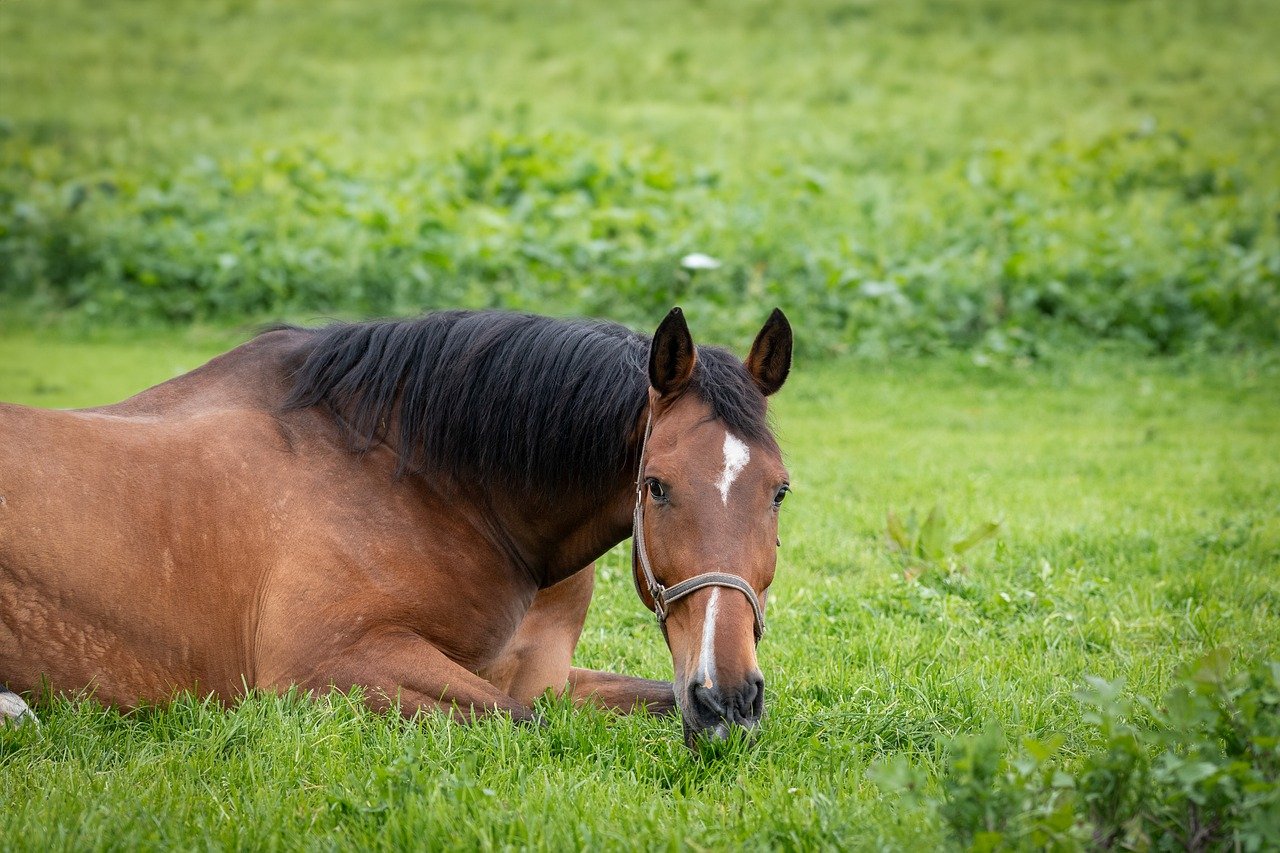Anxiety in horses is a common concern among equestrians and horse owners. Just like humans, horses can experience feelings of anxiety, stress, and fear, which can impact their behavior, performance, and overall well-being. Recognizing the signs of anxiety, understanding its causes, and implementing effective management strategies are essential for ensuring the mental and emotional health of your horse. This blog aims to provide comprehensive insights into anxiety in horses, including its causes, signs, and practical tips for managing and alleviating anxiety.
Causes of Anxiety in Horses
Environmental Factors
Environmental factors such as unfamiliar surroundings, loud noises, or changes in routine can trigger anxiety in horses. Horses are prey animals by nature, making them sensitive to their surroundings and susceptible to stressors in their environment.
Past Experiences
Negative past experiences, such as abuse, neglect, or traumatic events, can leave lasting emotional scars and contribute to anxiety in horses. Understanding your horse’s history and providing a safe and supportive environment are crucial for building trust and confidence.
Health Issues
Underlying health problems, physical discomfort, or pain can also cause anxiety in horses. Regular veterinary check-ups and prompt attention to any signs of illness or discomfort are essential for maintaining your horse’s health and well-being.
Rider’s Influence
The rider’s behavior, handling techniques, and level of skill can influence a horse’s anxiety levels. Inconsistent or harsh training methods can exacerbate anxiety and lead to behavioral issues. Positive reinforcement and patient, compassionate handling are key to building a strong bond with your horse and reducing anxiety.
Signs of Anxiety in Horses
Behavioral Signs
- Excessive sweating or trembling
- Agitation or restlessness
- Spookiness or heightened alertness
- Excessive vocalization (e.g., whinnying or neighing)
- Refusal to eat or drink
Physical Signs
- Elevated heart rate
- Rapid breathing or panting
- Muscle tension or stiffness
- Diarrhea or colic symptoms
- Loss of coat condition or weight loss
Management and Treatment Strategies
Create a Safe Environment
Creating a safe and comfortable environment is essential for reducing anxiety in horses. Provide a stable and predictable routine, minimize exposure to stressors, and ensure your horse has access to fresh water, quality forage, and adequate turnout.
Implement Relaxation Techniques
Incorporate relaxation techniques such as massage, stretching exercises, and ground work to help your horse release tension and anxiety. Establishing a calm and trusting relationship through consistent and gentle handling can also help alleviate anxiety.
Seek Professional Assistance
If your horse’s anxiety persists or escalates, contact Hillary for suggestions, and she may be able to help or refer you to a qualified anxiety specialist. They can provide personalized advice, treatment options, and support to help you and your horse overcome anxiety.
Consider Natural Supplements
Some horse owners find that natural supplements, such as magnesium, chamomile, or valerian root, can help alleviate anxiety in horses. Always consult with Rocky Valley Vet before introducing any new supplements to your horse’s diet to ensure they are safe and appropriate.
Behavioral Training and Desensitization
Behavioral training and desensitization techniques can help your horse become more confident and less reactive to triggers of anxiety. Gradually exposing your horse to stressors in a controlled and positive manner can help them build resilience and coping skills over time.
Anxiety in horses is a complex and multifaceted issue that requires patience, understanding, and proactive management. By identifying the causes of anxiety, recognizing the signs, and implementing effective management strategies, you can help your horse feel more relaxed, confident, and secure. Remember, building a strong bond based on trust, communication, and mutual respect is key to reducing anxiety and promoting the overall well-being of your horse. With compassionate care, consistent training, and professional guidance when needed, you can create a harmonious and fulfilling life for your anxious horse.
